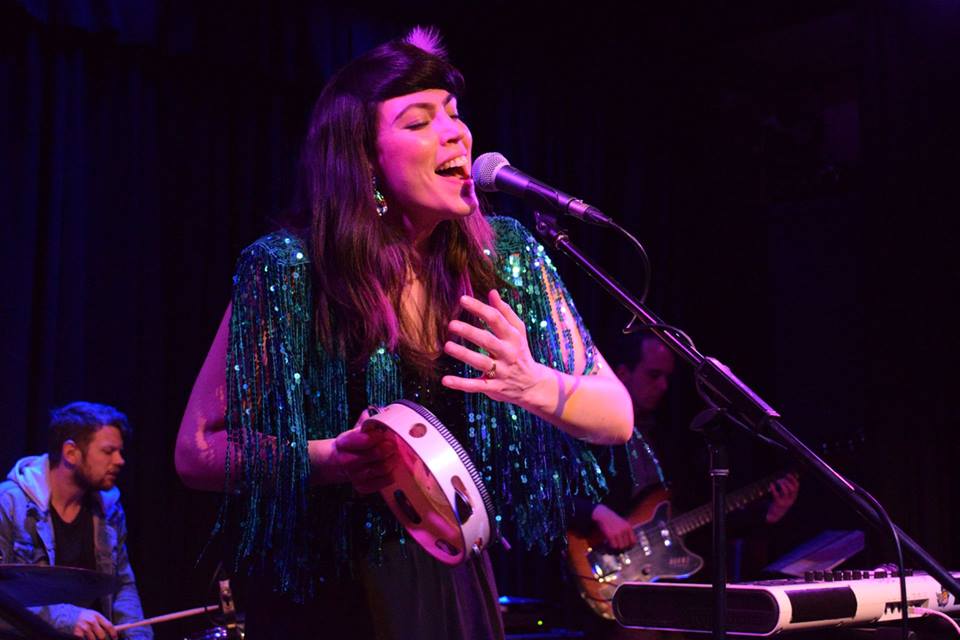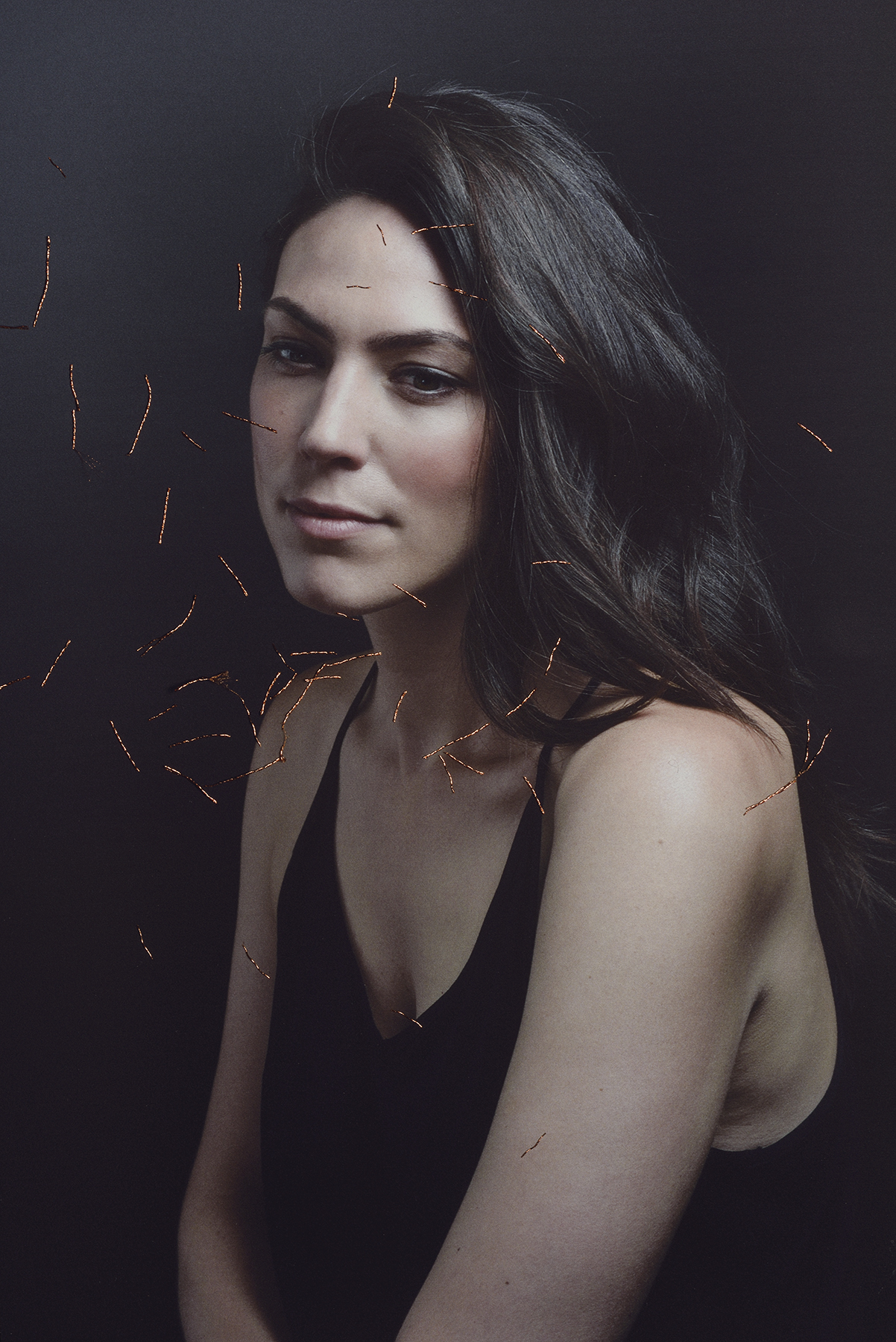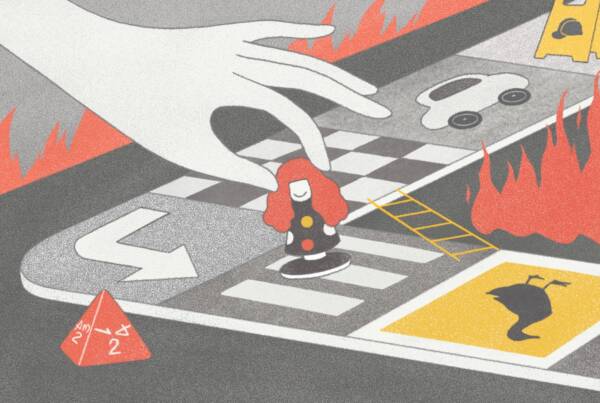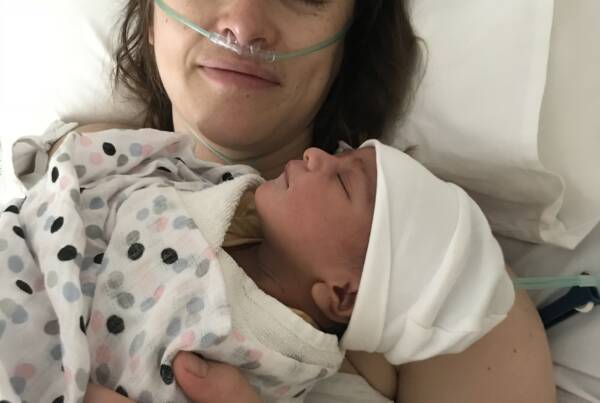Interview of Georgia Fields by Freya Bennett // Writing songs is how I make sense of the world inside and outside of me. It started as a compulsion, something I just felt like I had to do.
Interview of Georgia Fields by Freya Bennett
Hey Georgia, how are you?
I’m well, thank you!
Where do you call home?
I live in Melbourne’s leafy north east, in a 1960s-era red brick house with my husband, daughter, a million synths and keyboards, and our cat Spooner (named after Aretha Franklin’s organ player Spooner Oldham).
Tell us a little bit about yourself:
I’m a musician and singer-songwriter working predominantly in the pop music realm, however I love to collaborate and my music regularly incorporates orchestral and electronic elements. I also compose music for other people, which is a lot of fun – sometimes I write string arrangements for other artists’ album projects, and last year I wrote my first film score for feature-length documentary ‘Winter at Westbeth’. The story is a beautiful and life-affirming ode to creativity and aging – a must see for anyone who is artistically inclined or getting older (hey, that’s all of us!).
I am a mother to a vivacious 2-year- old girl, who constantly challenges and inspires me. I love roller skating, watching the Moon, sci-fi, I drink way too much coffee and make a pretty good batch of pancakes if I do say so myself.
Have you always wanted to be a musician?
I grew up in a family of musicians, so music and singing was everywhere. I regularly saw my parents and uncles and aunties on stage, and I didn’t think it was strange or anything particularly special. So yes – before I could conceive of music as a career I knew it as a way of life, and I definitely knew that I wanted to sing and write my own songs! In my teens and early-20s I fell into this idea of “making it” at music – the idea that you need to be signed to a label (not true) or sell heaps of albums (not true) to be a success, and anything other than that was falling short (not true again!). It wasn’t until my mid-20s when the fire started burning very strong, that I quit my job in London and moved home to pursue music in Melbourne full throttle.
Did you music study at uni and if so, did you enjoy it?
Yes! I studied at NMIT, which is now Melbourne Polytechnic. About a year after I started doing gigs, I really wanted to expand my skills and meet other musicians, so I decided to do a Bachelor of Music Performance… But I ended up switching over to a Bachelor of Music Business, because it meant I could focus on songwriting and self-management skills, which complemented my real-life work in the industry.
When I first auditioned for the course I couldn’t read music. I crammed and desperately tried to learn beforehand, but I totally flunked the music theory entrance exam and didn’t get into the course. I always knew I was a long shot, but I was still pretty devastated. A few weeks later the Head of the Music Program called to let me know that someone had left so they had a place for me. I was thrilled, but I also carried this nagging doubt through the first year of study – this feeling that I didn’t really deserve to be there. Imposter syndrome. I’m so glad I didn’t give into those doubts because I surprised myself: I caught up with my music theory, I made so many amazing connections with other artists, I released my first album while studying, and it was my lecturer who gave me my first ever paid string arranging job. It was hard work but if anyone out there is reading this and thinking of studying but maybe you don’t have the confidence, I encourage you to have a go – you never know where it might lead you. If I can learn to read music, ANYONE CAN.
What do you love about being a singer-songwriter?
Writing songs is how I make sense of the world inside and outside of me. It started as a compulsion, something I just felt like I had to do. My first songs were very personal, it was all about my own experience and joys and suffering. So much of our experience as humans is universal, which is why people can write very specific, personal songs that still manage to connect with strangers. Over the years I’ve grown more interested in the technicalities of songcraft, and more inspired by the stories around me. I enjoy the challenge of writing non-autobiographical songs. My recent album Astral Debris draws from mythology, fairytales and archetypes. However, even when I’m channeling someone else’s experience, it still comes through my own ‘life funnel’; I’m still looking at it through my own lens. And although I might feel proud of a song-story that I’ve spent months purposefully crafting, it is the deeply personal songs that seem to fall out of the sky and into the piano that mean the most to me in the long-term. Being a singer-songwriter gives me access to so many different worlds both creatively and psychologically, it is an adventure that I never want to resign from.
What do you think is difficult?
Resigning, haha! Letting go is difficult for me. I hate, hate, HATE feeling out of control. Maybe that’s another reason why I am a songwriter: it’s about taking emotional chaos and turning it into something beautiful that follows a form – verse, chorus, bridge, keychange…
Why is feminism important to you?
So many reasons! As a young woman in the music industry I was very insecure, comparing myself to other women (particularly their weight, because I was obsessed with my own), feeling jealous and not knowing how to process all these awful negative emotions. I bought into the lie that there’s only room for a handful of successful female artists, and we all have to fight each other for a piece of the pie. WRONG! I now see that this is one of the systematic ways that the patriarchy operates. Yes, there is still heaps of sexism and female artists are hugely underrepresented in festival line-ups. But we don’t need to fight each other for a tiny slice of the patriarchy pie (eww gross, who wants to eat that anyway), we can make our own goddam pie and jump out of it covered in cream and giving ourselves high fives. Courtney Barnett and Jen Cloher have shown us this with Milk! records. Evelyn Morris has shown us this with her collective, LISTEN. We still have a long way to go, but it has been so exciting to see the way feminism and in particular intersectional feminism has had an influence on the Melbourne music scene. We are the innovators.
What is the best piece of advice you’ve been given?
A few years ago I played Queenscliff Music Festival with RocKwiz Live. I got to sing a duet with grunge pioneer Kim Salmon on the main stage. It was incredible! Kim and I were getting along well, so backstage I asked if he had any advice for someone like me, just starting out in the industry. He just said, “Georgia… you think too much.” It was the perfect thing to say to this anxious, over-thinking, perfectionist Virgo! And he said it with such good humour and kindness that it has stayed with me all these years.
If you could have any superpower, what would it be?
Okay so my superpower would kind of be TWO superpowers rolled into one, but I would like to be able to fly AND hold my breath indefinitely and not die, so I could fly into space and visit the Moon and outer planets. Okay, so I would need to be able to fly at the speed of light if I wanted to visit the outer planets in a timely manner, and also have fire-proof skin so I could survive re- entry… So that is like four super powers in one, but that’s my wish and I’m sticking to it.
Where do you hope to be in 5 years?
Content. And/or on the moon.
If you could change one thing about the world, what would it be?
There are too many big things that I would love to change in the world – capitalism, global warming, patriarchy, war, the refugee crisis… I think if I had to choose just one thing, I would choose more kindness.
If you could tell 15-year-old Georgia something, what would it be?
You’re going to be okay. You are loved, you are safe, and things will work out. Keep eating meals and being kind to yourself, you deserve it!
What are three of your favourite personal features?
Of my own features? Oh wow, um… I think all of the things that I like about myself now happen to be things that I HATED as a teenager.
1) My eyebrows.
2) My armpit hair.
(Both very thick and unruly! And luscious!)
3) My breasts.
I really despised my breasts growing up, and after I had my daughter I fell in love with how amazing they are. Did you know that when a woman is doing 4- 6 breastfeeds a day, she is pumping approximately one Big M a day? I loved breastfeeding in public because it felt like I was reclaiming a part of my body (and my relationship with my baby) from the patriarchy. “Oh see these? Yes they’re my BREASTS and they were invented to feed my baby and bring me joy and if you can’t handle it then I think you should get out of this elevator!”
Recommendations:
Book: Hope Farm by Peggy Frew
Album: Stadium Cake by local legends Oh Pep!
Website: http://www.catsonsynthesizersinspace.com/
Can you leave us with a quote?
This is one that I’ve been coming back to lately. It’s an exchange between choreographer Agnes De Mille and modern dancer Martha Graham, quoted in the 1991 biography ‘The Life and Work of Martha Graham’.
De Mille says…
“I confessed that I had a burning desire to be excellent, but no faith that I could be.”
Martha said to me, very quietly:
“There is a vitality, a life force, an energy, a quickening that is translated through you into action, and because there is only one of you in all of time, this expression is unique. And if you block it, it will never exist through any other medium and it will be lost. The world will not have it. It is not your business to determine how good it is nor how valuable nor how it compares with other expressions. It is your business to keep it yours clearly and directly, to keep the channel open. You do not even have to believe in yourself or your work. You have to keep yourself open and aware to the urges that motivate you. Keep the channel open. As for you, Agnes, you have so far used about one-third of your talent.”
“But,” I said, “when I see my work I take for granted what other people value in it. I see only its ineptitude, inorganic flaws, and crudities. I am not pleased or satisfied.”
“No artist is pleased.”
“But then there is no satisfaction?”
“No satisfaction whatever at any time,” she cried out passionately. “There is only a queer divine dissatisfaction, a blessed unrest that keeps us marching and makes us more alive than the others.”
Georgia Fields is performing with her string quartet on Saturday 4 March at Northcote Uniting Church, with support from Anna Cordell. Tickets are $20 + bf via Eventbrite, with a special price of $10 + bf for under-16s. This event is all-ages, alcohol free, and the venue is wheelchair accessible. For tickets and info, visit georgiafields.com.









